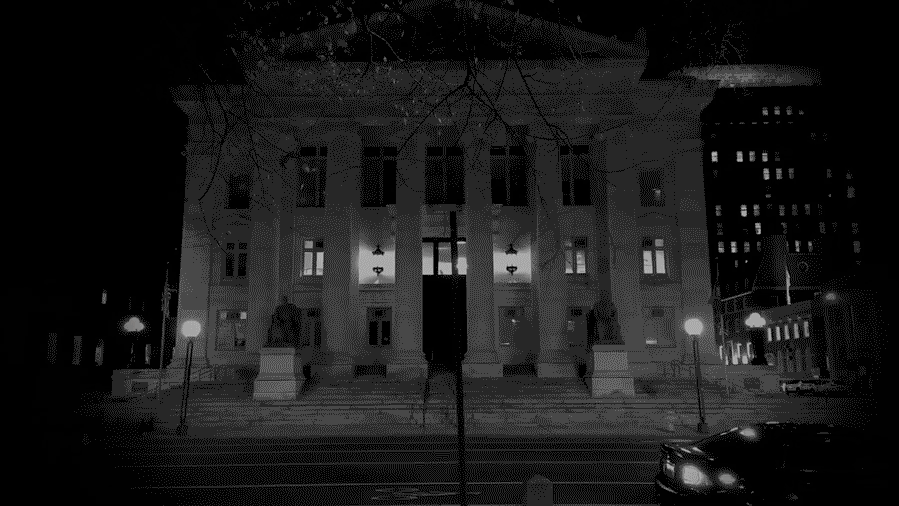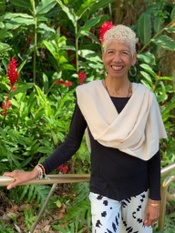

Ericka Huggins in conversation with Assistant Dean A.L. Steiner
Friday, November 13th at 1:30PM (EST)
Co-sponsored by Painting/Printmaking Department and The Beinecke Rare Book & Manuscript Library
This virtual talk is free and open to the public
Join the event on Zoom here >> yaleart.org/ErickaHuggins
Ericka Huggins is an educator, former political prisoner, human rights advocate, and poet.
For 45 years Ericka has lectured in the United States, and internationally, on Restorative Practices and, the role of spiritual practice in creating social change.
Ericka was professor of Sociology and African American Studies from 2008 through 2015 in the Peralta Community College District, and in California State Universities- East Bay and San Francisco.
Ericka is a Racial Equity workshop and Learning Lab facilitator for WORLD TRUST Educational Services. She curates conversations focused on the individual and collective work of becoming equitable in our daily lives, as well as the workplace. Additionally, she facilitates workshops on the importance of Self Care.
Editor details
Last edited by: Lindsey Mancini
Edit access: Everybody
Editor details
Last edited by: Lindsey Mancini
Edit access: Everybody
Jeffrey Prager in conversation with artist and Associate Professor Meleko Mokgosi
Wednesday, June 3rd at 8PM (EST)
Jeffrey Prager is a Research Professor in the UCLA Department of Sociology and a Training Analyst at the New Center for Psychoanalysis in Los Angeles. He has taught courses on White supremacy and the intergenerational transmission of racial trauma in the United States. He recently wrote Do Black Lives Matter? Psychoanalytic Reflections on American Racism and its Resistance to Reparations. He is also the author the article “Lost Childhoods, Lost Generations: The Intergenerational Transmission of Trauma” and the book Presenting the Past, Psychoanalysis and the Sociology of Misremembering. He has collaborated with colleagues in South Africa on apology, forgiveness and social redress. He is a Co-editor of The Routledge Handbook of Psychoanalysis in the Humanities and Social Sciences, and soon to be published Post-Conflict Hauntings: Transforming Memories of Historical Trauma.
Editor details
Last edited by: Lindsey Mancini
Edit access: Everybody
Professor Leslie Harris in conversation with artist and Associate Professor Meleko Mokgosi
Tuesday, June 9th at 12PM (EST)
Leslie Harris (Ph.D., Stanford, 1995) has focused on complicating the ideas we all hold about the history of African Americans in the United States; and finding ways to communicate these new ideas to the general public. Her first body of work on New York City challenged the prevailing view of slavery as a phenomenon of the southern United States, with little impact or importance in the north. In her first book, In the Shadow of Slavery: African Americans in New York City, 1626-1863 (University of Chicago, 2003), she examines the impact of northern and southern slavery on the definitions of class, gender, citizenship and political activism promulgated by New York’s blacks and whites. That work led to her participation in the New-York Historical Society’s groundbreaking exhibition Slavery in New York (2005-2006), for which she was a principal advisor as well as co-editor, with Ira Berlin, of the accompanying book.
Editor details
Last edited by: Lindsey Mancini
Edit access: Everybody
Professor Craig Steven Wilder in conversation with artist and Associate Professor Meleko Mokgosi
Thursday, June 11th at 1PM (EST)
Craig Steven Wilder is a historian of American institutions and ideas. Professor Wilder’s most recent book is Ebony & Ivy: Race, Slavery, and the Troubled History of America’s Universities (New York: Bloomsbury, 2013), which Kirkus Reviews named one of the best nonfiction books of the year and which won multiple book awards. It inspired the Grammy Award-winning artist Esperanza Spalding’s song, “Ebony and Ivy” in Emily’s D+Evolution (2016). A book titled Ebony & Ivy was featured in the film Dear White People (2014). He is also the author of A Covenant with Color: Race and Social Power in Brooklyn (New York: Columbia University Press, 2000/2001); and In the Company of Black Men: The African Influence on African American Culture in New York City (New York: New York University Press, 2001/2004). His recent essays include: “War and Priests: Catholic Colleges and Slavery in the Age of Revolution,” in Sven Beckert and Seth Rockman, eds., Slavery’s Capitalism (Philadelphia: University of Pennsylvania Press, 2016); and “‘Driven … from the School of the Prophets’: The Colonizationist Ascendance at General Theological Seminary,” the inaugural essay in the digital journal New York History.
Editor details
Last edited by: Lindsey Mancini
Edit access: Everybody
Artist Dread Scott in conversation with artist and Associate Professor Meleko Mokgosi
Tuesday, June 16th at 3PM (EST)
Dread Scott makes revolutionary art to propel history forward. His work is exhibited across the US and internationally. In 1989, his art became the center of national controversy over its transgressive use of the American flag, while he was a student at the School of the Art Institute of Chicago. President G.H.W. Bush called his art “disgraceful” and the entire US Senate denounced and outlawed this work. Dread became part of a landmark Supreme Court case when he and others defied the new law by burning flags on the steps of the U.S. Capitol. Dread’s studio is now based in Brooklyn.
His work has been included in exhibitions at New York’s MoMA PS1, the Walker Art Center, Minneapolis, Jack Shainman Gallery, NY, and Gallery MOMO in Cape Town, South Africa. His performance work has been presented at BAM in Brooklyn and on the streets of Harlem, NY. Work is in the collection of the Whitney Museum of American Art and the Brooklyn Museum. It has been featured on the cover of Artforum magazine and the front page of NYTimes.com. Dread is a recipient of a 2018 United States Artists Fellowship and grants from the Creative Capital Foundation and the Open Society Institute. He works in a range of media from performance and photography to screen-printing and video.
Dread plays with fire—metaphorically and sometimes literally—as when he burned $171 on Wall Street and encouraged those with money to add theirs to the pyre. His work asks viewers to look soberly at America’s past and our present. Writing about a recent banner project, Angelica Rogers wrote in The New York Times “…it was difficult to look away from the flag’s blocky, capitalized type. ‘A Man Was Lynched by Police Yesterday.’ It shouted the words so matter-of-factly that I felt myself physically flinch.”
He is on the board of the New York Foundation for the Arts and is an Academician in the National Academy of Design. Dread recently envisioned and organized Slave Rebellion Reenactment, a community engaged performance that reenacted the largest rebellion of enslaved people in American History.
Read “Dread Scott: America God Damn” published in the Art Newspaper, June 5, 2020 >>
Editor details
Last edited by: Lindsey Mancini
Edit access: Everybody
Anoka Faruqee, Director of Graduate Studies of Painting/Printmaking, in conversation with her sister, Mishi Faruqee, National Field Director of the Youth First Initiative
Tuesday, June 16th at 8PM (EST)
Anoka Faruqee, Professor and Director of Graduate Studies of Painting/Printmaking, will be in conversation with her sister, Mishi Faruqee, National Field Director of the Youth First Initiative, to discuss structural racism within the United States criminal justice system. Mishi Faruqee will address how she, others, and numerous organizations, have been working on the policy level for many years to analyze and then dismantle the devastating effects of mass incarceration.
Mishi Faruqee is the National Field Director of the Youth First Initiative. In her capacity at Youth First, Mishi supports the state-based campaigns by providing technical assistance, training and strategy support. Previously she worked as the juvenile justice policy strategist for the national ACLU and and as a campaign director at the Washington State ACLU. She worked as an advocate for juvenile justice and criminal justice reform in New York, with the Correctional Association of New York, first as director of the Women in Prison Project and later as director of the Juvenile Justice Project, as the director of youth justice programs at the Children’s Defense Fund-NY, and as special assistant to the Commissioner at the New York City Department of Probation. Mishi holds graduate degrees from Oxford University and the New School for Social Research and received her BA from Swarthmore College.
Editor details
Last edited by: Lindsey Mancini
Edit access: Everybody

